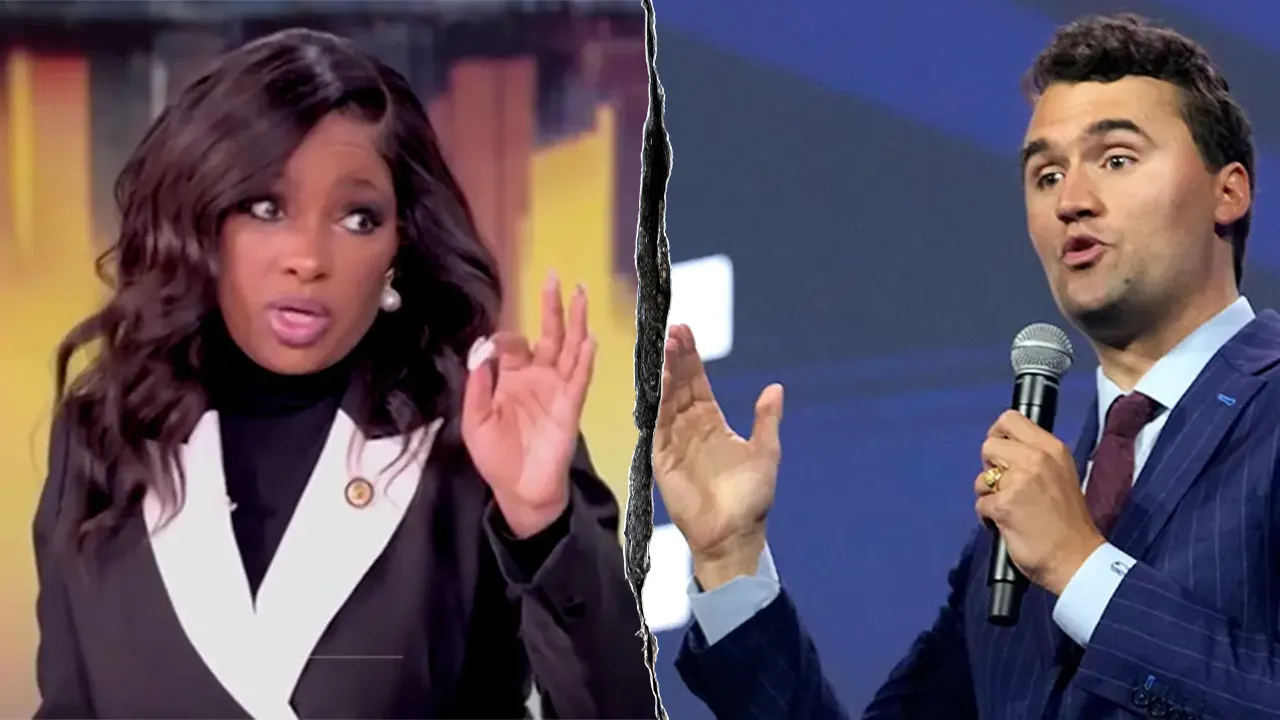Dallas, Texas, US: Representative Jasmine Crockett delivered a fiery rebuke on Capitol Hill after a group of White lawmakers supported a resolution to honor conservative activist Charlie Kirk, sparking nationwide debate about race, politics, and the figures America chooses to venerate.
A Sharp Congressional Clash
The controversy unfolded during a heated session of the House this week, where Republican members pushed forward the resolution to recognize Kirk, the founder of Turning Point USA, for what they described as his contributions to civic engagement and conservative youth advocacy. While supporters hailed the move as an appropriate tribute to a prominent conservative voice, opponents—led vocally by Rep. Jasmine Crockett of Texas—blasted the decision as deeply symbolic of racial and partisan divides in American politics.
Crockett, a freshman Democrat gaining growing recognition for her unapologetic and outspoken style, did not hold back in her criticism. She argued that honoring Kirk, who has frequently stirred outrage with his remarks on race, immigration, and diversity, sends a damaging message about the priorities of lawmakers.
Also Read
Crockett’s Impassioned Rebuttal
Taking the floor, Crockett accused her colleagues of attempting to sanitize or elevate ideologies that she argued do not represent the lived experiences of many Americans, especially communities of color.
“Every time we choose who to honor in this chamber, we make a statement to this nation about the values we uplift,” Crockett declared. She then singled out the group of White lawmakers who voted in favor of the recognition, calling their action “an insult to the communities still fighting for equal representation and respect.”
Her remarks were met with a mix of applause from her Democratic peers and stern silence from across the aisle. Observers noted how her direct confrontation underscored not just a battle over one man’s legacy but a broader political struggle over who defines American heroes in the public square.
Republicans Defend Charlie Kirk
Republican lawmakers defended their vote by framing Kirk as a passionate advocate for what they described as America’s founding principles. They argued that his organization has encouraged civic participation among young conservatives at a time when political engagement among younger generations remains a pressing challenge.
“We may not agree on every word he’s said,” one GOP member argued during the debate, “but Charlie Kirk has mobilized thousands of young Americans to take their responsibilities seriously. That is something worthy of recognition.”
For many Republicans, the criticism felt more like a partisan attack than a legitimate debate about public recognition. They countered that Democrats often support honoring progressive figures who are far more controversial in conservative circles.
The Broader Racial and Political Divide
While the resolution might have been procedural, its implications traveled much further. Crockett’s sharp critique touched on unresolved racial fault lines in Congress. Her comments about “White lawmakers” drew attention because they illuminated a painful historical truth: the institutions of power in the United States have often dictated which figures are raised into prominence, disproportionately sidelining voices from marginalized communities.
The clash also spotlighted how battles over cultural recognition mirror the nation’s broader political divides. One side views Kirk as a staunch defender of free speech and conservative values. The other views him as a provocateur who has amplified divisive rhetoric and pushed back against diversity and inclusion efforts.
National Reaction
Beyond the walls of Congress, the debate spilled into national media and social platforms, where responses fell largely along partisan lines. Conservative commentators hailed the GOP’s decision as an overdue recognition of a new generation of right-leaning leaders. Progressive platforms, on the other hand, circulated Crockett’s speech widely, praising her courageous confrontation and aligning it with a broader struggle against systemic bias.
Among ordinary voters, reactions have been mixed. Some believe the debate represents a distraction from urgent issues such as healthcare, inflation, and education. Others argue that symbolic decisions like these reveal core values guiding party leadership, and therefore matter just as much as policy debates.
Crockett’s Rising Profile
The clash also marked yet another moment in Crockett’s rapid emergence as a political force. Known for her trenchant critiques and bold rhetoric, the Texas lawmaker has grown her national profile by consistently challenging narratives she sees as exclusionary or harmful to communities of color.
Observers note that each high-profile appearance cements her role as a key voice among younger Democrats, especially those seeking a combative approach in the face of Republican dominance in certain chambers. The speech against honoring Kirk, delivered with sharp clarity, is likely to be remembered as a defining moment in her early career.
Looking Ahead
The resolution to honor Charlie Kirk is unlikely to shift national policy, but it has already succeeded in reigniting culture war battles in Washington. With elections looming, moments like this provide both parties with ammunition for their campaigns: Republicans eager to showcase their commitment to conservative figures, and Democrats determined to highlight divisions and paint themselves as defenders of inclusivity.
For Crockett, the episode underscored her willingness to confront colleagues directly, even when it risks backlash. For her critics, the speech exemplified what they see as unnecessary escalation of partisan discord.
What remains undeniable is that the debate represents more than symbolic recognition of one activist. It reflects the profound question of who belongs in America’s halls of honor—and who gets to decide.
FAQs
Why was Charlie Kirk being honored?
Republicans introduced a resolution recognizing Kirk for his work with Turning Point USA, a conservative youth organization.
What did Rep. Jasmine Crockett criticize?
She criticized White lawmakers who supported honoring Kirk, arguing that it undermines communities still fighting for recognition and respect.
How did Republicans respond?
Republicans defended Kirk as a figure who boosted youth civic participation and dismissed the backlash as partisan.
Why did the debate attract national attention?
It stirred conversations about race, partisanship, and which public figures deserve honor, echoing deeper divisions in American politics.
What does this mean for Crockett’s career?
Her fiery remarks have elevated her profile among Democrats, solidifying her as a bold and outspoken congressional voice.












